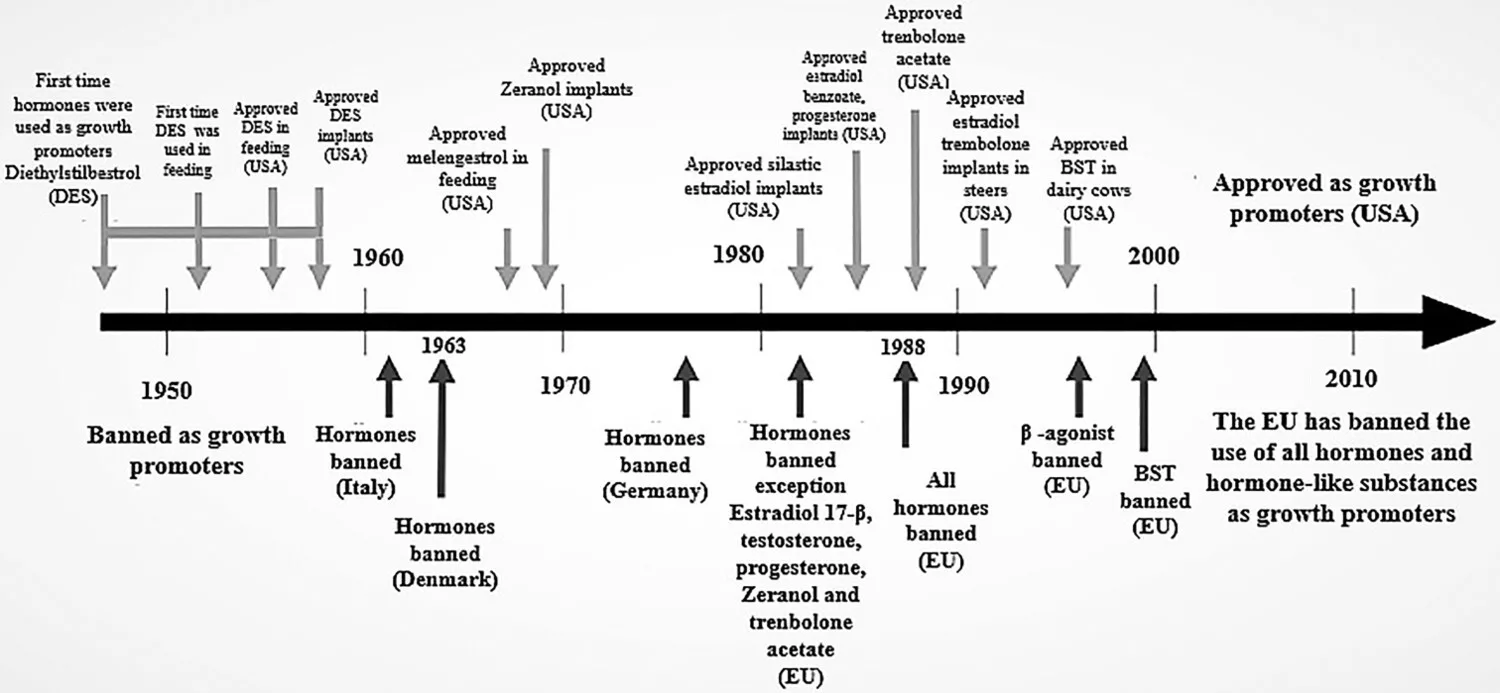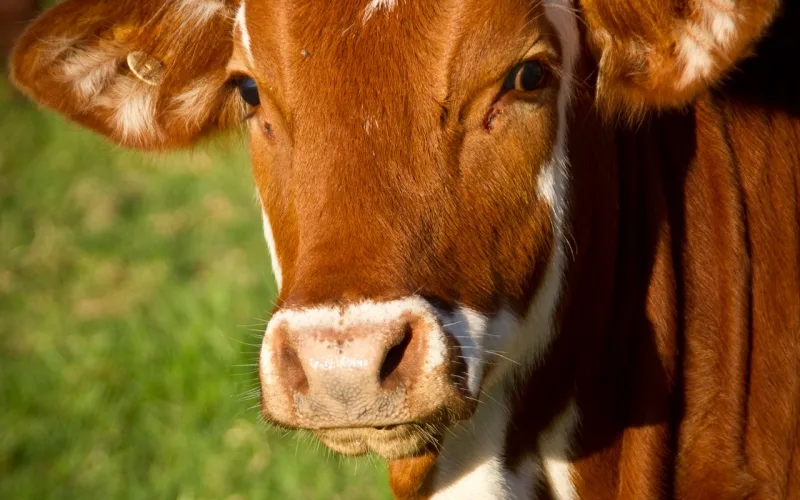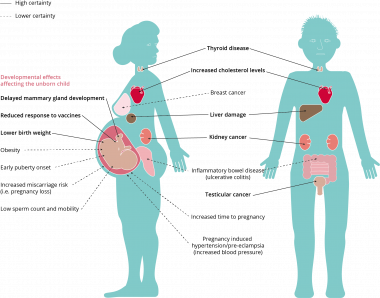Last Updated on May 14, 2024 by Ecologica Life
The EU is the only place where using hormones to increase an animal’s meat and milk production are banned. Hormonal application in farm animal production is a controversial topic that has been debated for decades.
Table of Contents
Why Give Farm Animals Hormones?
Hormones are naturally occurring substances produced by the body that play an important role in regulating growth, development, and metabolism. Farmers may use natural or synthetic hormones for several reasons:
- To treat sick animals.
- To treat reproductive disorders (with sex hormones)
- To increase the growth rate, muscle mass and milk supply.
Hormones are typically administered through injections, implants, or feed additives. Hormones are generally highly active compounds that have great effects on the animal even in small doses. some of the most used hormones in farm production include estradiol, progesterone, testosterone, and zeranol.
Why Did the EU Ban Hormones for Farm Animals
The EU banned the import of hormone treated beef in 1989 due to concerns associated with the hormones used.
This was challenged by the United States and Canada, both of which had previously approved the use of growth hormones in beef. Canada and the United States took the EU to the World Trade Organisation (WTO) Dispute Settlement Body. The WTO permits banning imports for health reasons if there is scientific evidence to justify it. In 1997, the WTO Dispute Settlement Body ruled against the EU.
In 1999 the risks to human health from hormone residues in beef and other meat products were re-evaluated by an independent scientific advisory body, the Scientific Committee on Veterinary Measures relating to Public Health (SCVPH). The SCVPH concluded that there was no acceptable daily intake (ADI) for any of the six growth hormones it tested (these included estradiol, progesterone, testosterone and zeranol).
In addition, the SCVPH concluded that there is significant evidence that estradiol is a complete carcinogen (tumour causing and tumour promoting effects). The SCVPH backed up these claims with further evidence in 2000 and 2002.
Based on this evidence the EU still bans the use of hormonal substances to promote growth in farm animals. Oestradiol may only be used in the EU to treat cattle and only under strict veterinary control. Since 2005, the European Commission has presented alternatives to oestradiol for the treatment cattle and continues to examine any new scientific evidence on the subject.

The Effects of Hormones in Meat and Dairy on Humans
Unfortunately, the scientific community is still divided on whether hormones in meat have any effect on humans and food safety.
Bovine Growth Hormone (BGH) is commonly used in the United States. It stimulates the release of Insulin-like Growth Factor 1 which enhances milk production in cows. IGF-1 It is resistant to pasteurization and therefore can be found in high levels in milk. Research has associated higher levels of IGF-1 in humans with prostate, breast, colon-rectum and lung cancers.
Additionally, hormones can disrupt the endocrine system, which can lead to reproductive and developmental problems. There is concern that these hormones in meat may disrupt the endocrine system in humans but this is contested.
The Effects of Hormones in Food on Animals and the Environment
Another concern is the potential for hormones to cause animal welfare issues. Hormones can cause animals to grow faster than their bodies can handle, leading to skeletal and joint problems. Other side effects can include pain in the adder, fever and depression.
There are also concerns about the potential environmental impacts of hormonal application in farm animal production. The hormones used in beef production can leach into the environment and contaminate water sources. This can lead to the contamination of drinking water and the disruption of natural ecosystems.
Oestrogens for example can have strong effects on fish and amphibians. Synthetic hormones tend to linger in the environment longer than their natural counterparts.
Benefits of Organic Food
In the EU, organic and non-organic food means that hormones have not been involved in the food production. However, organic products may have some real health benefits.
According to studies, organic milk has a slightly higher percentage of omega 3 and 6 fatty acids, as well as vitamin E and iron. Research has shown that people who eat organic produce over a long period of time may a lower incidence of infertility, birth defects, allergies, high BMI and non-Hodgkin lymphoma (cancer). One of the reasons for this is that organic food doesn’t contain pesticide residues.
Additionally, organic farming may be better for the environment as it emits less greenhouse gases and pollutes less than its conventional farming counterpart. For more information read our guide to organic food








